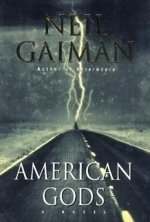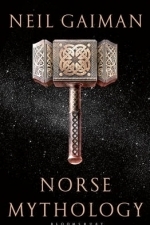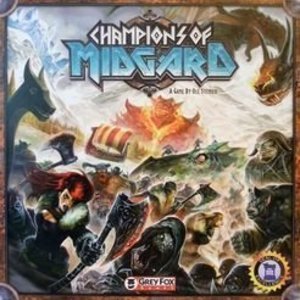
Champions of Midgard
Tabletop Game
Champions of Midgard is a middleweight, Viking-themed, worker placement game with dice rolling in...
Boardgames VikingGames
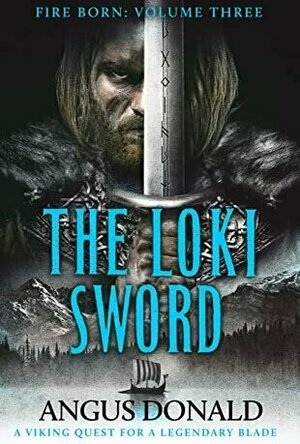
The Loki Sword (Fireborn #3)
Book
An ancient blade, fit for the gods but tainted with a deadly curse. Bjarki Bloodhand has finally...
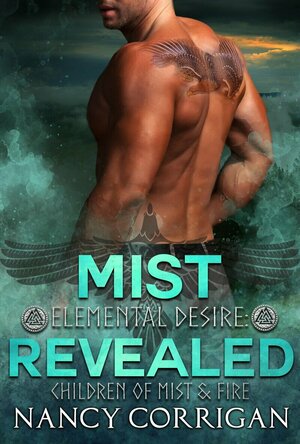
Mist Revealed (Elemental Desire #1)
Book
An ancient vampire. A bookish woman. And an explosive bond neither expected. Rune awakens into the...
Paranormal Romance
Hadley (567 KP) rated American Gods in Books
Jun 5, 2020
A science fiction/ fantasy story set in today's America, American Gods tries to answer the question of what happens when people stop believing in the past gods, and start worshiping new ones?
Shadow is our main character, who we meet while he's attempting to get released from prison after three years of incarceration - - - afterall, he has a job, wife and life waiting for him on the outside. And even though he's built up a strong exterior while in prison, everything comes crashing down after he receives news that his wife and best friend have died in a car accident.
Cue Wednesday, an old, odd man who gives Shadow a job after his release from prison - - - with strings attached: Shadow can't ask any questions, he must protect his employer at all costs, and if people need to be hurt, he must hurt them. Although Wednesday doesn't tell him exactly what is going on, Shadow agrees to his duties and begins a road trip with the eccentric old man, meeting an array of colorful characters along the way. But soon, Shadow begins to realize that his employer may be a mythical god in disguise, yet, oddly Shadow never really questions it or anything in the entire book for that matter.
The novel takes an odd turn early on when Shadow's dead wife, Laura, comes back to life in a zombified way. While Shadow is staying in a cheap hotel room, and Wednesday sharing a room with a young hotel employee in another, Shadow sees his wife in the clothing she was buried in, but he doesn't flinch - - - he carries a very calm conversation with dead Laura, he even goes down to the lobby to buy her a pack of cigarettes, and the next morning, he still doesn't seem bothered by it when he sees her muddy footprints on the floor. Wednesday tries to convince Shadow it was a dream, but makes snarky remarks that tells Shadow that even he knows it wasn't a dream. The two simply move on on their road trip, no questions asked.
But during this road trip, Shadow's suspicions are confirmed. He gets to see not only Wednesday, but two others in their true god-form, and afterwards, Wednesday confirms that he is indeed the Norse god, Odin.
Gaiman's take on mythological gods living in today's society is interesting, but disappointing. From recognizable gods to the forgotten ones, readers with a liking to history would probably enjoy this story most.
American Gods centers on the question of what happens to gods when they are no longer worshipped, and Gaiman merely focuses on male gods, while making all female characters (gods and humans) either prostitutes and/or sexual objects which is really off-putting for me as a female reader. And Gaiman's character development in the novel for gods and humans is nowhere to be seen thus lending very little plot development that is actually believable or enjoyable. I was unable to bring myself to care about our main character, Shadow, nor the plight with his zombie wife.And speaking of Laura, the disappointing character traits makes her not just unlikable, but also an unnecessary character overall.
I just can't recommend this book: the novel is good for the first 100 pages, but you could easily skip the next 450 pages that is just filler, and not miss much of the story. Gaiman also dehumanizes women, introduces characters in a way that would make them seem an important part of the story to only drop them out of it as quickly as they came in, and the ending is just a huge disappointment. All in all, Gaiman had a great idea, but the execution he used was poorly done - - - some parts even seem like Gaiman wrote them in a completely different state of mind, contradicting story lines and character traits altogether.
I did, however, have three favorite characters that weren't utilized enough for me to rate the story higher than I have: Mad Sweeney, Ibis and Jacquel. Mad Sweeney is a giant leprechaun that can pull gold coins out of the air; Ibis and Jacquel are Anubis and Jackel from Egyptian mythology, who run a funeral home in Cairo, Illinois today.
American Gods takes place only over a few months, which is surprising with how long the novel is. But the story is a buildup with no climax. Most characters come and go before readers can even decide if they like them or not,and that paired up with severe lack of character development leaves most of the main characters pretty forgettable. With this special edition containing 1200 more words, the story is still not worth it in the end. Gaiman is still a great writer, but this is not the book to recommend to anyone who wants to begin reading his work.
David McK (3721 KP) rated Trapped (The Iron Druid Chronicles, #5) in Books
Jan 30, 2019
In this, Atticus's apprentice Granuaille has finally nearly finished her training, with a large part of the story dealing with Atticus's attempts to get some peace in order to do so: a peace that keeps getting interrupted by the gods and goddesses of various pantheons, a lot of whom bear a grudge against him for various reasons (with the end of the novel having Atticus trying to make amends for previous actions - personally, I felt this was a bit 'tacked on' - against the Norse pantheon)
Comic relief, as always, is provided by his Irish Wolfhound Oberon (who Atticus can mentally communicate with), providing a much needed dose of lightening to the proceedings.

Magnus Chase and the Sword of Summer
Book
The first book in the incredible new series from the author of Percy Jackson, the Kane Chronicles...
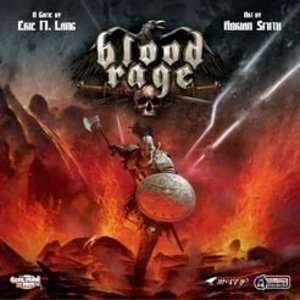
Blood Rage
Tabletop Game
"Life is Battle; Battle is Glory; Glory is ALL" In Blood Rage, each player controls their own...
Miniatures BoardGameGeekGreatness
David McK (3721 KP) rated Norse Mythology in Books
Jan 28, 2019
Mainly since I don't have a shelf for 'mythology'.
Which is what this is: a straight re-telling of various of the Norse myths by [a:Neil Gaiman|1221698|Neil Gaiman|https://images.gr-assets.com/authors/1234150163p2/1221698.jpg], an author who is most familiar to me through his colloboration (and friendship) with the late, great, Sir [a:Terry Pratchett|1654|Terry Pratchett|https://images.gr-assets.com/authors/1235562205p2/1654.jpg] in [b:Good Omens: The Nice and Accurate Prophecies of Agnes Nutter, Witch|12067|Good Omens The Nice and Accurate Prophecies of Agnes Nutter, Witch|Terry Pratchett|https://images.gr-assets.com/books/1392528568s/12067.jpg|4110990], but who I am aware is famous in his own right and has written many other tales - some of which I have read (such as [b:Stardust|16793|Stardust|Neil Gaiman|https://images.gr-assets.com/books/1459127484s/16793.jpg|3166179], [b:American Gods|30165203|American Gods|Neil Gaiman|https://images.gr-assets.com/books/1462924585s/30165203.jpg|1970226] and [b:Neverwhere|14497|Neverwhere|Neil Gaiman|https://images.gr-assets.com/books/1348747943s/14497.jpg|16534] all spring to mind), others of which I haven't (such as his Sandman series) .
As a straight re-telling, some of these myths are already familioar as they are ingrained in our popular culture (such as Ragnarok), whereas others have become more 'popular' and familiar over the years since the inclusion of Thor (and Loki) in the Marvel Cinematic Universe.
It is unusual, however, to find such a retelling that is aimed at an adult audience - even if, by reading some of the prose within this, you might think it was aimed at kids (until you realise what's going on)!
David McK (3721 KP) rated Tricked (The Iron Druid Chronicles, #4) in Books
Jan 30, 2019
I'm not sure whether that is because it comes after [b:Hammered|10443590|Hammered|Mark Ward|https://d.gr-assets.com/books/1328728608s/10443590.jpg|15348265] my choice for the best or because the main plot line of [b:Hounded|18404329|Hounded|David Rosenfelt|https://d.gr-assets.com/books/1382758931s/18404329.jpg|26038191], [b:Hexed|6372672|Hexed|Michael Alan Nelson|https://d.gr-assets.com/books/1348584639s/6372672.jpg|6560286] and [b:Hammered|10443590|Hammered|Mark Ward|https://d.gr-assets.com/books/1328728608s/10443590.jpg|15348265] are finished, or even because of the unfamiliar (to me) Navajo setting, but to me, this just didn't gel as much as any of the previous three.
The plot has to do with Atticus dealing with the aftermath of his journey to Asgard in the previous novel, and the deal he made with Coyote to cover his tracks, with the big bad in this taking the form of two Skinwalkers rather than the Irish god(s) of the first, the Witches of the second or the Norse gods of the third.
It's not a bad read, just not my pick for the best of the series
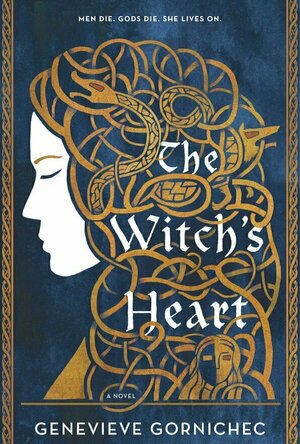
The Witch's Heart
Book
When a banished witch falls in love with the legendary trickster Loki, she risks the wrath of the...
